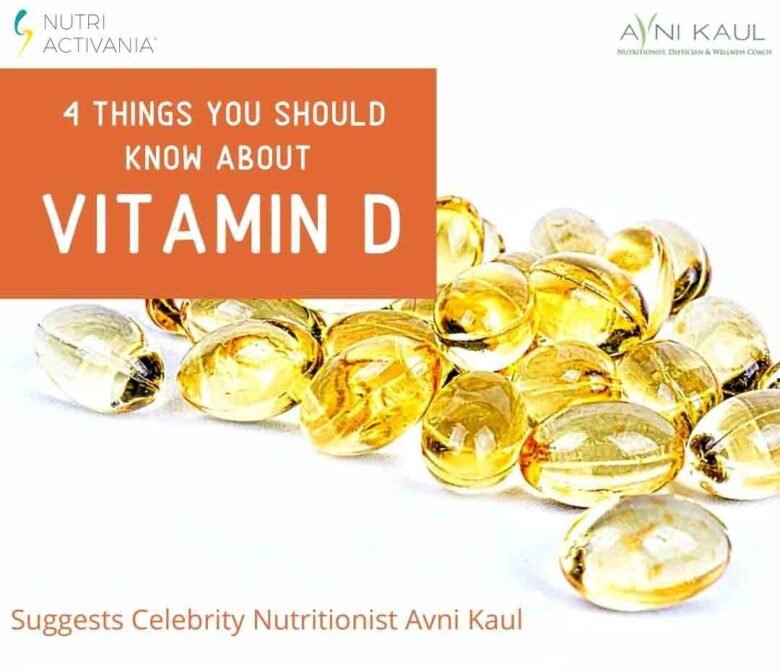While the news headlines are filled with speculations for a possible COVID-19 vaccine launch date, a large number of scientific research on the other hand, are gradually identifying a possible linkage between COVID-19 and Vitamin D deficiency.
In the Journal of Clinical Endocrinology & Metabolism, researchers looked at a large number of COVID-19 patients in a hospital in Spain and of all the patients, 82.2 percent were deficient in vitamin D. Source – https://jamanetwork.com/journals/jamanetworkopen/fullarticle/2770157
India’s celebrity Nutritionist and Dietician Avni Kaul, says “If you are deficient in Vitamin D, you are, possibly, 3 to 4 times prone to catch a cold and viral respiratory infection like Covid-19.”
On Nutriactivania’s past blogs, we have mentioned some of the great sources of Vitamin D (if you have missed the post, please click here to read (http://www.avnikaul.com/blog/2020/05/30/how-to-boost-vitamin-d-when-you-are-stuck-indoors-by-nutritionist-avni-kaul-delhi/).
In today’s post, Nutritionist Avni shares some of the key information about Vitamin D, that may help people to understand this key vitamin better.
1. Less Vitamin D During Winters
Our skin stores vitamin D away for the winter, having ideally been exposed to sufficient UVB rays during the summer months in order for receptors in our skin to synthesize the light to make vitamin D. In other words, it means people have reduced ability to make Vitamin D in winters when they get exposed to the sun.
Thus even if you have started sitting in the sun lately (say for the last couple of weeks or months), don’t assume your body must be having an adequate level of Vitamin D. Include a sufficient quantity of Vitamin D in your daily diet and consult a health expert to check if you need a Vitamin D supplement or not.
2. City People Get Less Vitamin D.
Remember, city people commonly get less vitamin D on a daily basis than those living in villages, mainly because city dwellers live indoors most of the time. They also get poor quality of sun rays in winters due to thick pollution.
3. Vitamin D and Colour of Your Skin
Melanin is the substance in the skin that makes it dark. It “competes” for UVB with the substance in the skin that kick-starts the body’s vitamin D production. As a result, dark-skinned people tend to require more UVB exposure than light-skinned people to generate the same amount of vitamin D. So if you are dark-skinned then limited and pollution-restricted winter sunlight may not be adequate for you.
4. Age and Vitamin D
Remember, compared to younger people, middle age and older people’s skin has a lower capacity to convert sunlight into vitamin D. So if you are in your middle or old age, make sure your diet contains an adequate dose of daily vitamin D.
Note: during the current pandemic situation, it is a good idea to consult a health expert to check your body’s Vitamin D level and if necessary take Vitamin D supplements under medical supervision or after consultation with a qualified nutritionist.
**This article has been written by team Nutri Activania**
Special Online Diet Program, Designed for Home Quarantine
Do anxiety, boredom, and stress from home isolation are causing you sleeplessness, fluctuations in blood pressure and sugar levels, frequent indigestions? Are you worried about your immunity level and weight gain due to the homestay and due to the absence of morning walks and Gym?
Join Nutritionist Avni Kaul’s special online diet program, designed to keep you fit, reach weight loss goals, and boost your immunity while you stay during home isolation. To know more and book your online appointment, call 9953228642.
Talk to the Nutritionist Avni Kaul to know more about Special online diet programs for weight loss and obesity management, Therapeutic Diets for people suffering from Thyroid, Diabetes, Hypertension, PCOD, Irritable Bowel Syndrome.


